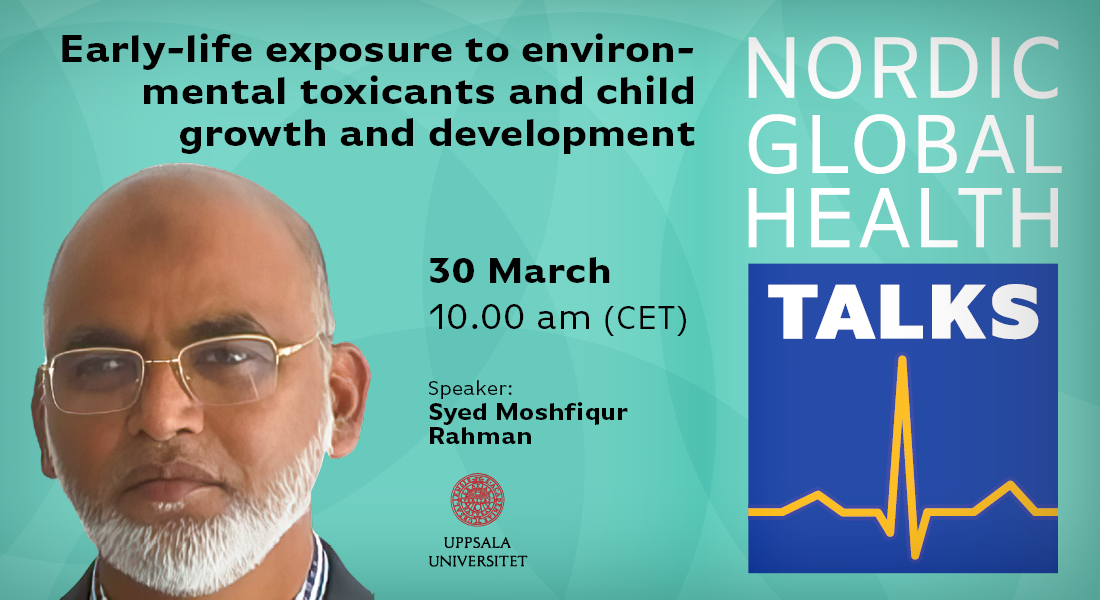Early-life exposure to environmental toxicants and child growth and development

See the webinar recording here.
This talk is by Syed Moshfiqur Rahman, Uppsala University.
The developmental origins of health and disease (DOHaD) hypothesis and recent evidence indicate that nutritional deficits and early-life exposure to environmental toxicants contribute to the development of metabolic syndromes later in life. Environmentally-related childhood diseases represent an enormous global public health problem, particularly in low and middle-income countries. In Bangladesh, a lower middle-income country, we have established a longitudinal population-based mother-child cohort (MINIMat; Maternal and Infant Nutrition Interventions, Matlab) in a rural sub-district called Matlab. MINIMat was a groundbreaking initiative to shed light on the relationships between exposure to environmental toxicants and metabolic diseases and nutritional and developmental delays. Considering the ambitious goals and targets of the SDGs, countries need to understand, acknowledge and prioritize issues pertaining to prevention of exposure to environmental toxins as well as focus on the promotion of adequate nutrition and child development.
About Nordic Global Health Talks
Nordic Global Health Talks is a monthly webinar series about global health research at Nordic universities, hosted by the Nordic Network on Global Health. It is free and open to everyone interested in knowing more about Nordic global health research, education and collaborative projects.
